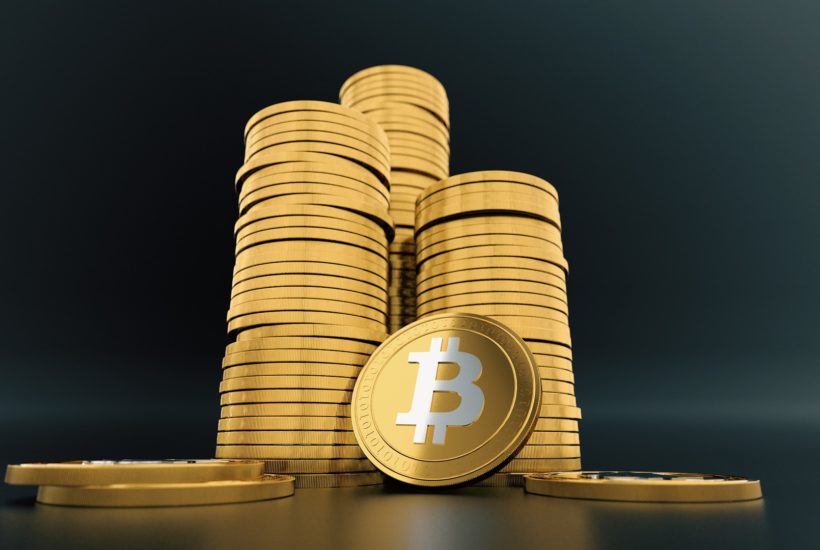Crypto
The most audacious cryptocurrency pyramid schemes
Bitcoin is considered the grandfather of cryptocurrency, rising from a value of just a few cents to thousands of dollars per coin. Cryptocurrency is beginning to hit the mainstream and investors continue to look to crypto as a way to make money quickly. Unfortunately, many investors fell victim to pyramid schemes. Bitconnect, PlusToken, and OneCoin are amongst the most well-known crypto scams.

Recently the sheer scale of crypto scams has become apparent. Millions of otherwise intelligent investors from around the world were taken for fools, often by surprisingly simple cryptocurrency pyramid schemes. Some scammers were arrested, but others went unpunished and are preparing to launch new criminal schemes.
The Born2Invest mobile application is bringing all the crypto, and business news from trusted sources to a single screen so you can stay on top of the market. The app aggregates the most important breaking news from relevant websites and boils them down into 400 characters or less.
How do cryptocurrency pyramid schemes work?
Financial pyramids all work on the same simple principle. The promise of stable payments via a “lucrative” referral program, aimed at attracting as many people as possible. In most sectors, these schemes are largely discredited or sophisticated. Crypto provided bad actors with a unique opportunity.
Crypto scammers were able to leverage the lack of understanding surrounding the technology to go back to basics. By hiding behind the mystique of cryptocurrency, scammers were able to exploit people’s inability to understand the complicated technology that underpins most legitimate cryptocurrency projects.
There were hundreds of such schemes, but the following four are probably the most infamous major cryptocurrency pyramids. This problem has affected people around the world. Some schemes are still in place despite the arrest of the organizers, others are in the recent past, but their masterminds are still at large and preparing to launch new projects.
Bitcoinnect
One of the most famous cases of fraud in the cryptocurrency market is the Bitcoinnect project. Its representatives assured investors that they were creating a decentralized P2P-currency based on open-source code. Vitalik Buterin was the first to find the problem – he called the project a financial pyramid.
The Bitcoinnect scheme, tempted investors to put money into BCC tokens with the promise of stable returns, a rarity in the crypto world. For example, users who invested $10,000 were promised an annual income of 90%. The company had a classic referral system for financial pyramids, and it did not disclose where their money came from to pay bonuses. There was an anonymous team of developers behind this project.
At the end of January 2018, everything ended when financial securities regulators in Texas and North Carolina called Bitcoinnect’s business model a classic financial pyramid. After the company’s closure, the token value instantly collapsed by 92%, and by September 2018 it had been removed from all stock exchanges. The FBI is currently looking for victims of this financial pyramid and is hunting for the perpetrators. According to various estimates, the damage from Bitcoinnect may exceed $1 billion.
Cashbury
Cashbury was established in Rostov-on-Don to provide microloans at thousands of percent per annum. In 2016, the firm’s management changed, and it later it began to position itself as a platform for uniting investors and borrowers. Borrowers were people who often needed money “before salary” or money for microbusinesses. Investors were the people who had free money to lend.
Investors were promised 200-600% per annum. There was an online calculator on the site that immediately calculated future profits. At the same time, the profitability depended on how many fellow depositors you bought with you. Sound familiar?
Artur Vardanyan is listed as the founder of “Cashbury,” but the company’s founding documents include three Vardanyans each with different years of birth, specifically, 1980, 1981 and 1983. Each of them has several companies registered.
After the Bank of Russia declared Cashbury a financial pyramid in September of last year, Vardaryan stated that he refused to work under the conditions of “repression” from the authorities and would create a new international structure.
PlusToken
The first mention of PlusToken appeared in the Chinese messenger, WeChat, on Jul. 2, 2018. The company was widely advertised on social networks and grocery stores. Its representatives held meetings aimed to promote the project and attract new users. According to the analytics company CipherTrace, the number of people involved in the pyramid could have been as many as four million. PlusToken has been promoted in South Korea, Japan, and other Southeast Asian countries, as well as in Canada, Germany, Ukraine, and Russia. The project was aimed at people who knew nothing about cryptocurrencies but were curious about the potential financial rewards.
Through PlusToken, users could instantly convert Chinese Yen to Bitcoin, Ethereum, Litecoin, EOS, Dogecoin and other altcoins. Which, in turn, could be converted to PLUS coins. Payments for initial investments and new depositors were made only in this token.
Over the years, PlusToken brought in 200,000 BTC, 789,000 ETH, and 26,000,000 EOS, all of which have been stored at financial pyramid-controlled addresses. In June 2019, Vanuatu authorities arrested a group of PlusToken financial pyramid organizers at the request of China. The scam caused widespread damage across Asia to the tune of around $3 billion.
OneCoin
Over the past three years, Ruzha Ignatova’s crypto company has attracted over $4.5 billion (€4 billion) from dozens of countries including Pakistan, Brazil, Norway, Hong Kong, Canada, and Yemen. According to the BBC, the figure may reach up to $16.5 million (€15 million). In early November 2019, Ruzha Ignatova’s brother, Konstantin Ignatov, appeared in New York City as a witness, claiming he was deceived and did not realize that OneCoin was a financial pyramid. The founder of the project herself has been in hiding since 2017, and no insight into exactly where she is hiding has been found. U.S. authorities accused her of electronic fraud, securities fraud, and money laundering.
Singapore called the OneCoin project a financial pyramid and arrested two supporters of the project who face up to five years in prison and a $147,000 fine. Ninety-eight people were prosecuted in the course of the investigation by the Chinese authorities, and $268 million were recovered.
In some countries, OneCoin’s branches continue to operate, and many investors hope that they can still withdraw their money and make a profit. However, the project, which calls itself cryptocurrency, does not have blockchain, and also works on the principle of network marketing.
The confusing nature of cryptocurrency has meant that ordinarily cool-headed investors have been taken in by surprisingly simple crypto pyramid schemes. Just because a technology is new, or the market is going up, does not mean all projects have merit. Investors need to do their due diligence to avoid crypto scams. The adage holds: If something seems too good to be true, it probably is.
__
(Featured image by QuinceMedia via Pixabay)
DISCLAIMER: This article was written by a third party contributor and does not reflect the opinion of Born2Invest, its management, staff or its associates. Please review our disclaimer for more information.
This article may include forward-looking statements. These forward-looking statements generally are identified by the words “believe,” “project,” “estimate,” “become,” “plan,” “will,” and similar expressions. These forward-looking statements involve known and unknown risks as well as uncertainties, including those discussed in the following cautionary statements and elsewhere in this article and on this site. Although the Company may believe that its expectations are based on reasonable assumptions, the actual results that the Company may achieve may differ materially from any forward-looking statements, which reflect the opinions of the management of the Company only as of the date hereof. Additionally, please make sure to read these important disclosures.
First published in РБК, a third-party contributor translated and adapted the article from the original. In case of discrepancy, the original will prevail.
Although we made reasonable efforts to provide accurate translations, some parts may be incorrect. Born2Invest assumes no responsibility for errors, omissions or ambiguities in the translations provided on this website. Any person or entity relying on translated content does so at their own risk. Born2Invest is not responsible for losses caused by such reliance on the accuracy or reliability of translated information. If you wish to report an error or inaccuracy in the translation, we encourage you to contact us.

-

 Business2 weeks ago
Business2 weeks agoTopRanked.io Weekly Affiliate Digest: What’s Hot in Affiliate Marketing [Best Technology Affiliate Programs]
-

 Business1 week ago
Business1 week ago2.5 Billion People Watch Quiz Shows Every Day. Masters of Trivia (MOT) Is Letting Them Compete
-

 Crypto2 weeks ago
Crypto2 weeks agoBitcoin Steady Near $68K as ETF Outflows and Institutional Moves Shape Crypto Markets
-

 Crypto2 days ago
Crypto2 days agoMiddle East Tensions Shake Crypto as Bitcoin and Ethereum Slip

























